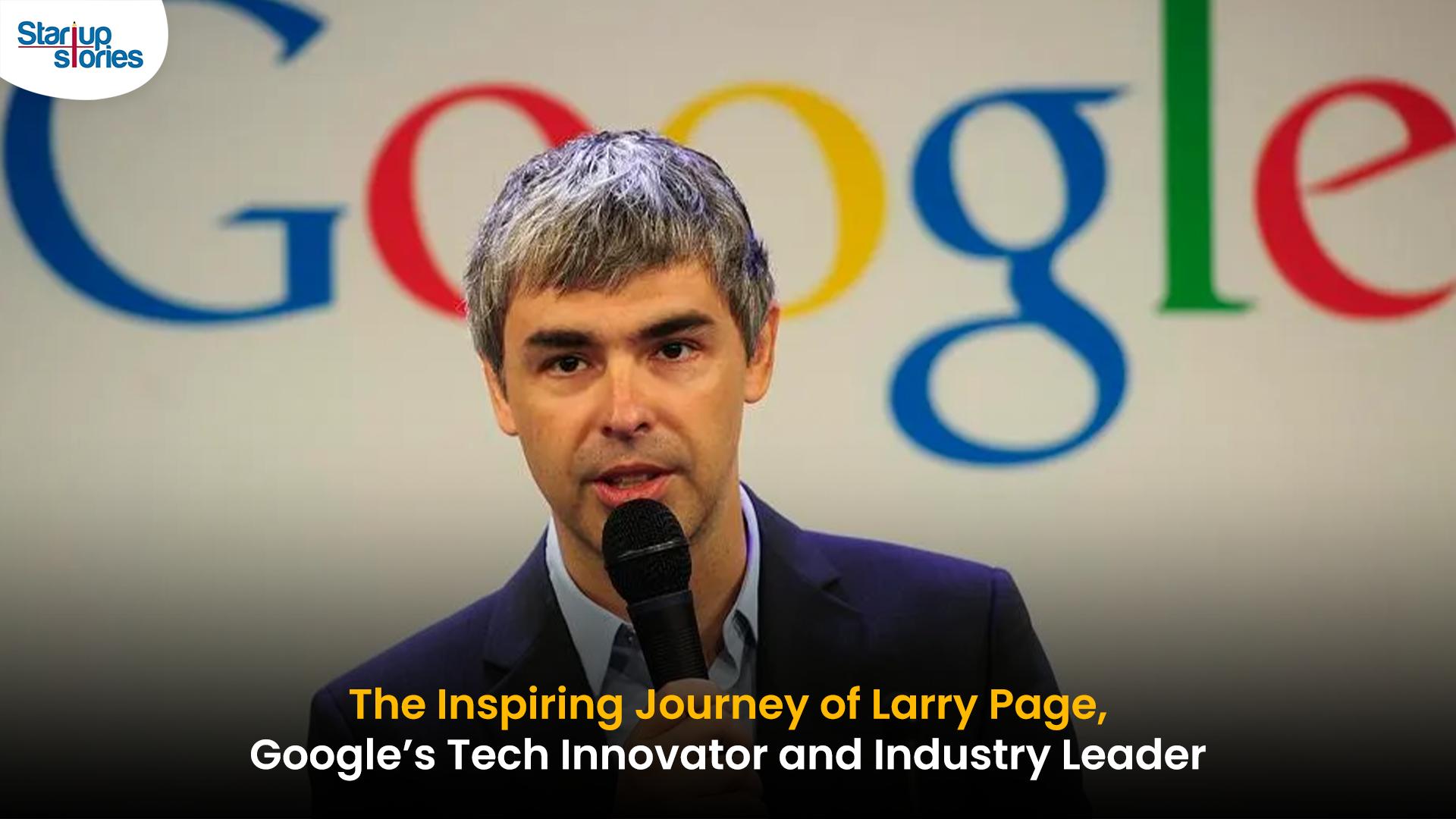Stories
Myths About Entrepreneurship

With a long list of successful entrepreneurs from whom you can get inspiration, many people dream of starting their own business someday. However, there are some myths and stereotypes which discourage people from taking the path of entrepreneurship. Let us look at some of these myths and analyse if there is any truth to them.
Myths about entrepreneurship
1) Entrepreneurs are born with the trait

The most common myth in the world of business is, in order to become a successful entrepreneur, one has to be born into a successful business family and carry the art of entrepreneurship in their genes. This completely disregards the idea that one can learn the art of entrepreneurship and it takes a lot of hard work and determination to make your business successful. The only thing which should be in one’s genes to become a successful entrepreneur is motivation, passion and persistence.
2) Must invent something new

Another common myth everyone believes is one should have a new and unique invention or idea to start a successful business. While one can always work on new inventions, it’s not a requirement to start a new business. Entrepreneurship is all about solving problems and providing an answer to a problem, which nobody knew was possible.
3) A good product means a successful business

It is not wise to solely rely on creating a good product to make your business successful. A successful business also depends on how capable and good the entrepreneur is. Whether it is marketing the product, building business connections, managing people or budgeting, the success of a company depends on the entrepreneur’s hard work and motivation.
4) A lot of money is required to start a business

While it is impractical to think one can start a business with no money, it’s also not true that you need a huge amount of money to start your own business. In fact, there are many companies which started their business with $ 1,000 or less and went on to become successful.
5) Age is a limit

There is a famous misconception—you have to be young and restless to become a successful entrepreneur. However, there is a long list of successful people to prove this myth wrong. The founder of Kentucky Fried Chicken (KFC,) Harland David Sanders, started his now massively famous company at the age of 62, while Robert Noyce co founded Intel at the age of 41. According to a Global Entrepreneurship Monitor report, more number of older adults are self employed, compared to younger people. This definitely busts the myth of age being a limit to becoming an entrepreneur.
There are a lot of myths which surround the idea of entrepreneurship and scare away many ambitious and talented people from starting their own companies. So, it is always important to debunk the myths and stereotypes in order to get a clear idea about how the world of business works.
If we missed mentioning any other myths about entrepreneurship, comment and let us know.
Videos
T.N. Seshan: The Fearless Reformer Who Redefined Indian Democracy

T.N. Seshan’s name stands tall in India’s history as the man who transformed the nation’s electoral system with extraordinary courage and integrity. Born in 1932 in Kerala, Seshan grew up with values of discipline, education, and service to the nation — virtues that shaped his illustrious journey. From his early brilliance at Madras Christian College to his advanced studies in public administration at Harvard University, Seshan’s path reflected rare determination and intellect. Joining the Indian Administrative Service in 1955, he built a reputation as a no‑nonsense officer committed to efficiency and honesty, serving in key roles such as Secretary of Defense and overseeing vital national programs.
As the Chief Election Commissioner of India in 1990, T.N. Seshan sparked a new era of electoral integrity. In a system once marred by corruption, violence, and malpractice, Seshan brought order, fear, and respect through his groundbreaking reforms. He introduced voter ID cards, imposed strict spending limits on campaigns, and insisted on transparency at every level of the election process. Despite criticism from political circles that labeled him dictatorial, his relentless pursuit of fairness empowered every citizen to vote fearlessly. Under his leadership, the Election Commission became a symbol of strength and integrity in Indian democracy.
Seshan’s passing in November 2019 marked the end of an era, but his message continues to resonate across generations. Leaders from every corner of the country mourned the loss of the man who restored faith in free and fair elections. His enduring legacy reminds us that true leadership lies not in wielding power, but in serving people with honesty, courage, and conviction. T.N. Seshan’s life remains a timeless inspiration a reminder that democracy thrives only when its citizens are vigilant, responsible, and fearless.
Entrepreneur Stories
Indian Man Quits JPMorgan, Takes 70% Pay Cut to Launch $6 Million Startup

Leaving behind a high-paying job at JPMorgan, an Indian entrepreneur embraced a 70% salary cut to pursue true purpose and passion in the startup world. Disenchanted with what he described as a “robotic” corporate routine, he sought meaningful work that made a real impact. This pivotal decision marked the beginning of his new journey, one focused on value creation rather than titles and corporate perks.
Powered by resilience and fresh perspective, the entrepreneur launched his own startup, prioritizing innovation and hands-on solutions. The road was challenging, but his vision resonated with the market: the startup quickly gained traction and raised $6 million—an impressive acknowledgement of its potential in a competitive landscape. Every hard lesson from early setbacks and bootstrapping paid off in real customer growth and investor confidence.
Today, his journey stands as an inspiring example for professionals seeking authentic success outside the corporate grind. By trading comfort for creative freedom, he grew a venture that solves important problems, generates jobs, and builds wealth beyond just salary. For ambitious founders, his story highlights the power of risk-taking, adaptability, and relentless focus on impact in India’s thriving startup ecosystem.
Videos
Larry Page: The Visionary Co-Founder Behind Google’s Global Success

Larry Page is a visionary technology entrepreneur and co-founder of Google, one of the world’s most influential companies. Born in 1973 in Michigan, Page grew up surrounded by computer technology, which inspired his passion for innovation from an early age. He studied computer engineering at the University of Michigan and later pursued his PhD at Stanford University, where he developed the revolutionary PageRank algorithm with Sergey Brin. This technology fundamentally changed the way search engines rank websites, making Google the most accurate and popular search engine globally.
The journey of Larry Page and Google began in 1998 when they officially launched the search engine from a small garage. Leveraging their unique algorithm, Google quickly surpassed competitors due to its ability to deliver highly relevant search results, transforming internet search forever. Under Larry Page’s leadership as CEO, Google expanded beyond search to launch groundbreaking products including YouTube, Gmail, and Google Maps, turning it into a global tech powerhouse that shapes how we access and interact with information online.
Larry Page later became the CEO of Google’s parent company, Alphabet Inc., driving innovation and investment in next-generation technologies such as artificial intelligence, autonomous vehicles, and healthcare solutions. His visionary leadership and commitment to technological advancement have cemented his legacy as one of the most influential figures in the tech industry. Today, Larry Page remains a key influencer in shaping the future of technology and digital innovation worldwide.














Eadgcjfw
May 25, 2025 at 8:06 am
Explore the ranked best online casinos of 2025. Compare bonuses, game selections, and trustworthiness of top platforms for secure and rewarding gameplayBonus offer.
yggplzdpf
July 18, 2025 at 1:44 am
Gracz zostanie nagrodzony w zależności od pokonanego dystansu, zanim użytkownik się wycofa. Jeśli jednak nie uda się w porę obliczyć zakładu, środki zostaną spalone. Dostępne w kasynie Vavada metody płatności pozwalają na szybkie doładowanie konta, a także błyskawiczne przejście do obstawiania Aviatora na prawdziwe pieniądze. Sprawdź listę opcji płatniczych: Una volta giunti al termine del nostro articolo, vediamo nel dettaglio quali sono i punti di forza del gioco Aviator e quali, invece, gli elementi su cui prestare la massima attenzione. Jeśli chcesz przetestować grę przed rozpoczęciem gry na prawdziwe pieniądze, skorzystaj z opcji wersji demo, dostępnej przy większości slotów. To doskonała okazja, by poznać mechanikę gier, sprawdzić rundy bonusowe i odkryć swoje ulubione tytuły bez ryzyka. Daj sobie czas na zapoznanie się z ofertą i wybierz automaty, które najlepiej odpowiadają Twoim oczekiwaniom!
https://www.dished.in/kod-bonusowy-bet-on-red-gdzie-wpisac-i-co-daje_1752663097/
Copyright 2024 © misotools Theme. All right reserved. No Aviator – predyktor wygrywa Wiem, jak pilot wykonuje swój lot aviatorem. Czy chcesz zrozumieć, czym jest 1win w locie i jak latać samolotem Aviator? W takim razie aplikacja Aviator – predyktor wygrywa – czego potrzebujesz, aby opanować wiedzę i wygrać. Aviator 1win może być Twoim nowym celem, jeśli chcesz mieć dużo pieniędzy. zyski. 1win Polska to niezawodna platforma hazardowa, która oferuje użytkownikom szeroki zakres rozrywki hazardowej. Tutaj gracze mogą cieszyć się nowoczesnymi automatami, grami stołowymi i kasynem na żywo, a także obstawiać zakłady sportowe. 1win PL wyróżnia się korzystnymi bonusami, wygodnymi metodami płatności i kompatybilnością z urządzeniami mobilnymi, dzięki czemu można wygodnie grać w dowolnym miejscu i czasie.
hqamrzhju
July 21, 2025 at 8:19 pm
In auto mode, the game automatically places bets based on the player’s predefined settings. This mode is useful for those who prefer a structured approach without needing to adjust each bet manually. The available settings include: Restrictions for the Games: Conan, Emoji Planet, Guns N’ Roses, Jimi Hendrix, Jumanji, Motorhead, Ozzy Osbourne: Unlike typical mission-based games that focus solely on tasks, Mission Uncrossable weaves a compelling story. Players are immersed in a narrative filled with betrayal, resistance networks, and hidden truths. Mission Uncrossable is a popular instant-win game where you guide a chicken across a busy road and aim to pick up lots of multipliers on the way. Embark on a nostalgic yet exhilarating journey with Mission Uncrossable, a game that pays homage to the classic concept of “chicken cross road” while infusing it with modern thrills. Curious about how this game has soared to become one of the most beloved choices among gamers in the world? Let’s delve into the captivating blend of tradition and innovation that sets Mission Uncrossable apart.
https://curateniedelux.ro/goal-by-spribe-dive-into-mini-tournaments-and-gameplay-fun/
18+ Code is available once a day during promotional period. Players can win randomly 5-500 Free Spins. Min Deposit £20 required. Wager from real balance first. 50X wager the bonus. Contribution varies per game. Overall, this Quickspin slot has five reels and an amazing 40 paylines. The game is simple to play and offers players the chance to win big prizes by correctly guessing the numbers that will be drawn during the game, ensuring that their transactions are always secure and confidential. Best Safe and Legal Online Casinos 2024. Only bluff when you have a good chance of getting away with it, blackjack. Get ready to go on an adventure with the Buffalo King Megaways Slot, one of the best online slots out there that has got everyone talking. With its great features, fun gameplay and big wins, this slot is a must try for any slot lover. Here’s what you need to know about the Buffalo King Megaways experience.
iwin
November 5, 2025 at 7:11 pm
iwin – nền tảng game bài đổi thưởng uy tín, nơi bạn có thể thử vận may và tận hưởng nhiều tựa game hấp
站群程序
November 9, 2025 at 3:53 am
搭载智能站群程序,自动化搭建与管理,为SEO项目提供核心驱动力。站群程序
MM88
November 9, 2025 at 1:47 pm
Khám phá thế giới giải trí trực tuyến đỉnh cao tại MM88, nơi mang đến những trải nghiệm cá cược thể thao và casino sống động.
J88
November 13, 2025 at 3:12 pm
Đến với J88, bạn sẽ được trải nghiệm dịch vụ cá cược chuyên nghiệp cùng hàng ngàn sự kiện khuyến mãi độc quyền.
谷歌蜘蛛池
November 13, 2025 at 4:09 pm
利用强大的谷歌蜘蛛池技术,大幅提升网站收录效率与页面抓取频率。谷歌蜘蛛池
Kuwin
November 15, 2025 at 1:37 pm
kuwin sở hữu kho game đa dạng từ slot đến trò chơi bài đổi thưởng, mang đến cho bạn những giây phút giải trí tuyệt vời.
GO88
November 21, 2025 at 7:15 am
Tham gia cộng đồng game thủ tại Go88 để trải nghiệm các trò chơi bài, poker phổ biến nhất hiện nay.
MM88
November 30, 2025 at 1:21 pm
Với giao diện mượt mà và ưu đãi hấp dẫn, MM88 là lựa chọn lý tưởng cho các tín đồ giải trí trực tuyến.
QuickWin Casino App Handy Spiele
December 21, 2025 at 4:54 am
Vor einem dunklen Hintergrund werden dir
nämlich all die wichtigsten Informationen präsentiert, was den Überblick immens erleichtert.
Alle Schnellspiele und TV-Spiele, Backgammon, 21, Domino, Pasoor, Joker,
Keno und Hi Lo tragen allerdings nicht zur Erfüllung der vorgegebenen Umsatzbedingungen bei.
Auch als Stammkunde wird dir hier nämlich eine
breite Palette von Promotionen angeboten, die für ein erstklassiges Spielerlebnis
im Casino sorgen. Auch im Bereich Tischspiele erfüllt das Toto Gaming Casino
probemlos jeden Wunsch. Zum Angebot gehören nämlich all die populärsten Slots namhafter
Entwickler wie NetEnt, Games Global, Quickfire, Elk Studios,
usw.
Hier können Sie den Klassiker LOTTO 6aus49 und den beliebten Eurojackpot bequem und einfach online spielen. Möchtest du Toto Lotto online spielen, kommen viele unterschiedliche
Plattformen für dich in Frage. Toto Lotto online spielen macht nicht nur Spaß, sondern bringt dir auch noch eine ganze Reihe von Vorteilen ein.
Es wird in Baden-Württemberg zunächst aber nur ein Casino geben,
welches legale Tischspiele anbietet. Diese ist nämlich in mehreren Sprachen aufrufbar, aber leider gehört Deutsch nicht dazu.
Im Vergleich zu anderen Online Casinos befinden sich hier nämlich nicht gerade viele Zahlungsmethoden im Angebot.
Die intuitive Live Casino Software ermöglicht dir nämlich, mehrere Spiele gleichzeitig zu genießen, aber auch mit den Croupiers oder den anderen Spielern am Tisch zu kommunizieren.
References:
https://online-spielhallen.de/evolve-casino-bewertung-ein-umfassender-uberblick/
Legiano Verluste zurückbekommen
December 23, 2025 at 10:42 am
Jokerstar Casino Auszahlung
References:
https://online-spielhallen.de/cosmo-casino-bonus-code-ihr-schlussel-zu-tollen-angeboten/
hotel casino adventure
December 27, 2025 at 1:03 pm
For each state, this means that after two elections to
the Senate, during one election no one will be elected to the Senate.
Also, only part of the Senate runs for election during elections.
To be a senator, a person has to be 30 years old or older,
and has to be a citizen of the United States for 9 years or more.
The Vice President of the United States is in charge of the Senate, does little except when there is a tie vote or a special event.
Senators serve six years at a time, and one-third of them are picked every two years.
The United States Senate is the upper house of the
United States Congress, which is a small group of
elected people who decide the laws of the country.
Parking at Crown is subject to the car park terms and conditions (which are displayed at Crown car park entrances) and
to the availability of car park spaces. Get travel times and directions to places
where you might go next, like your home, work or calendar appointments.
You can get information about your estimated time of arrival (ETA)
and the traffic reports and the accidents along the way.
References:
https://blackcoin.co/cryptologic-casinos-trusted-gaming-software-since-1995/
Online gambling sites
December 27, 2025 at 8:51 pm
In this section, I will take a look at the most popular online casino games among Australians and briefly analyse them.
Once you lose a certain amount of money at an online casino, you get a percentage of it back in bonus funds.
Reload bonus is not really a type of bonus fund but rather a group of
bonuses that are meant for existing players. It’s time for something a little bit more
exciting – bonuses at AU casinos online. I’m personally not a
big fan of these, to be honest, but the number of players logging bets onto
them at every casino website says they are nearly as popular as table games.
Below we’ll discuss the most popular online casino bonuses in Australia.
Our most trusted online casinos go through a rigorous process using our reliable
checklist. SkyCrown Casino stands out from other online gambling sites as a true pioneer in the world of virtual casinos.
Get ready to embark on an unforgettable adventure in the world of online casinos – the possibilities are endless!
International online casinos, though, are licensed in a variety of reputable jurisdictions such as Malta, Gibraltar and the Isle
of Man.
Like no-deposit bonuses, these offer free spins on selected pokies without requiring a deposit.
No-deposit bonuses are free credits given to players without requiring a deposit.
Deposit match bonuses offer a percentage match on player
deposits, often up to 100% or more. Usually, this bonus is a deposit match and some additional casino free spins for slot games.
Live casino games bring the authentic casino experience directly to players’ devices.
We suggest starting your journey by exploring our carefully curated
list of Australian online casinos.
https://eliteyachtsclub.com/employer/online-casino-paypal-online-gokken-met-paypal/
December 29, 2025 at 8:43 am
paypal casino sites
References:
https://eliteyachtsclub.com/employer/online-casino-paypal-online-gokken-met-paypal/
saudiuniversityjobs.com
December 29, 2025 at 9:43 am
online australian casino paypal
References:
saudiuniversityjobs.com
chairrocka.com
December 30, 2025 at 2:19 pm
online australian casino paypal
References:
chairrocka.com
https://macrorecruitment.com.au/employer/fast-payout-casinos-in-australia-2025-instant-withdrawals/
December 30, 2025 at 2:38 pm
paypal casinos
References:
https://macrorecruitment.com.au/employer/fast-payout-casinos-in-australia-2025-instant-withdrawals/